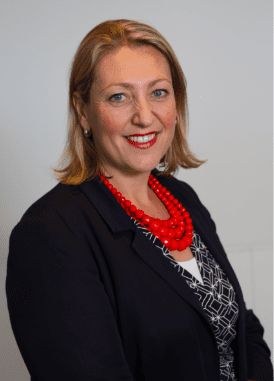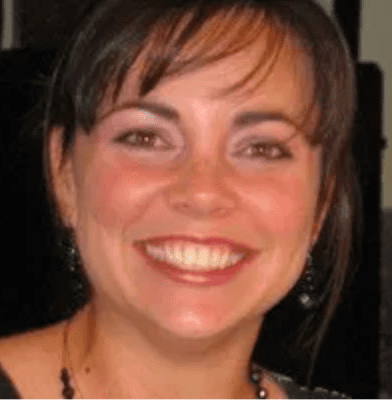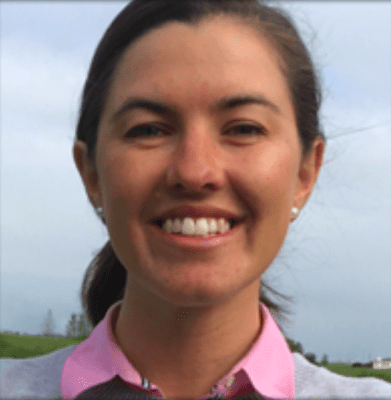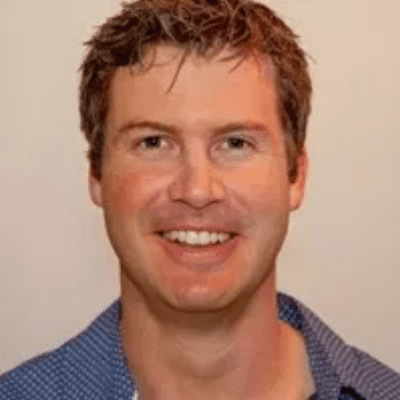A NEW crop of 17 leading primary producers in Australia yesterday were awarded Nuffield Farming Scholarships for 2019, with women making up the majority of scholars for the first time.

Nuffield CEO, Jodie Dean
Announced at the Nuffield National Conference Annual Awards Dinner in Melbourne, the 2019 Nuffield Scholars will receive a $30,000 bursary to travel the globe to research cutting edge production techniques and technologies across a wide range of industries
The 2019 cohort of scholars have selected wide ranging study topics, from regenerative practices in wine production and the impact of livestock wellbeing on productivity, to alternative fuel sources and energy solutions for Australia’s agricultural sector.
Nuffield chief executive officer, Jodie Dean, said the calibre of the 2019 scholars reflected the innovative spirit inherent in Australian agriculture amidst challenging seasonal conditions, and bucked the trend across many industries with women making up the majority of the field.
“For nearly 70 years, Nuffield has been supporting the best and brightest in Australian agriculture, and we are delighted to once again be able to present such a strong and exciting group of Scholars,” Ms Dean said.
“Our new Scholars demonstrate all the qualities we need in agriculture. They are inquisitive, creative and determined to produce change and drive the industry forward.
“With the generous support of their investors, these Scholars will be in a position to unearth some of the most exciting concepts, technologies and trends in global agriculture, and share their findings and insights with the wider industry once they return to Australia.
“There is a big focus on sustainability amongst our 2019 Scholars, with research topics including ways to reduce plastic use in fresh produce packaging and the impacts of climate variability on the red meat sector. I believe this is indicative of their passion for the long-term viability of the industry.”
The National Conference is Nuffield Australia’s flagship event, providing a meeting point for Australian farmers and agricultural innovators to share their latest research findings with industry, and to network with the broader agribusiness supply chain.
2019 Nuffield scholars:
Frank Miller from Rapid Creek, NT, supported by ANZ and the Northern Territory Government, will investigate ways to realise the optimal value of Northern Australian timber investments.
Johanna Tomlinson from Kalgan, WA, supported by the CBH Group, will investigate global soil and production management strategies with a focus on how soil acidity has become a significant threat to Western Australia’s broadacre industry.
Richard Leask from McLaren Vale, SA, supported by Wine Australia, will research best practice regenerative farming systems across the wine sector to understand how to successfully transition to less chemically intensive models.
Thomas Green from Tintinara, SA, supported by Rabobank, will research ways to build consumer confidence in intensive agricultural systems through the implementation of best practice in animal welfare.
Ellen Litchfield from Marree, SA, supported by Westpac Agribusiness, will investigate the impacts of climate change on red meat production and profitability in arid and semi-arid rangelands.
Andrew Sargent from Crystal Brook, SA, supported by the Grains Research & Development Corporation (GRDC), will investigate how farm sensors and the Internet of Things (IoT) can improve the efficiency and profitability of cropping and mixed farming enterprises.
Jake Newnham from Campania, Tas, supported by Woolworths, will investigate how to advance Australian cherry production, most notably post-harvest packaging and handling procedures.
Clare Peltzer from Evandale, Tas, supported by Meat & Livestock Australia, will investigate how the agricultural sector can attract and retain the appropriate talent through better alignment with schools and ag-education programs.
Natasha Shields from Baxter, Vic, supported by the William Buckland Foundation, will investigate alternative packaging options and shelf-life outcomes for organic fresh produce in the current drive to minimise the use of plastics in Australia’s retail environment.
Anthony Close from Culla, Vic, supported by Australian Wool Innovation (AWI), will investigate ways that the Merino can once again become a prominent feature of the Australian farming landscape.
Christina Kelman from Kemps Creek, NSW, supported by Hort Innovation, will investigate ways the Australian horticulture sector can increase outputs while reducing inputs and farming sustainably
Thomas Moore from Tenterfield, NSW, supported by the Royal Agriculture Society of NSW Foundation (RASF), will investigate innovative housing methods to promote the growth of Australia’s free-range egg industry.
Renée Anderson from Emerald, Qld, supported by Cotton Australia and the Cotton Research and Development Corporation (CRDC), will investigate management practices that improve the social, environmental and economic sustainability of agriculture, and communicate positive farming practices to consumers.
Rebecca Comiskey from Eidsvold, Qld, supported by The Yulgilbar Foundation, will investigate modern technologies that can be incorporated into beef production systems to increase the rate of genetic gain and enhance key profit drivers such as fertility, market compliance and production efficiencies.
Kerri-Ann Lamb from Killarney, Qld, supported by Hort Innovation, will investigate emerging trends, risks and opportunities in the fresh cut potato, sweet potato, onion and pumpkin market to determine what the industry should be doing now to prepare itself for the future.
Alistair Corr from Moura, Qld, supported collectively by Australian Agricultural Company, Consolidated Pastoral Company, Elders, North Australian Pastoral Company and S. Kidman & Co, will investigate the effect that a range of wellbeing factors before, during and after transport can have on the production value of cattle.
Tamara Uebergang from Miles, Qld, supported by the Sylvia and Charles Viertel Foundation, will investigate alternative fuel sources and energy solutions for Australia’s agricultural sector.
…………………..
Three of the Nuffield 2019 scholars in broadacre industries, and their research priorities:
Johanna Tomlinson from Kalgan, Western Australia, receives a Nuffield Scholarship supported by the CBH Group.
She will investigate global soil and production management strategies with a focus on how soil acidity has become a significant threat to Western Australia’s broadacre industry.
Together with her husband Wayne, Johanna runs third generation family business, Tomlinson Agricultural, on 4,000 hectares situated on the south coast of Western Australia. The enterprise produces prime lambs, wool, beef and broadacre crops such as barley, wheat, lupins and canola.
Soil health and improving overall grower understanding of soils is a key priority for Johanna, who hopes to assess global soil acidity and management techniques on her scholarship. She will also investigate how different lime sources and supplies are being managed around the world.
“Having worked in farming and natural resource management for almost 20 years, I believe soil acidification is a critical issue for the sector and, quite frankly, a sleeping giant. It’s impacting on current production and will have dramatic impacts if a long-term plan is not put in place,” she said.
“Soil acidity is an issue we are working to manage on our own farm, but we also recognise the need for further and continued lime applications around the region to ensure that lime can be applied at the rate required to recover and maintain production capacity.
“I see the outcomes of my Nuffield Scholarship being delivered back to our community on the south coast through grower and natural resource management groups. I would also like to see the findings incorporated into current and future work on soil acidity throughout Western Australia.
On her study program, Johanna intends to visit broadacre regions with similar farming systems throughout North and South America and Europe to understand their soil acidification management techniques.
……………
Tamara Uebergang from Miles, Queensland, receives a Nuffield Scholarship supported by the Sylvia and Charles Viertel Foundation.
Through her research, she will investigate alternative fuel sources and energy solutions for Australia’s agricultural sector.
Having trained at Marcus Oldham, Tamara is the farm manager at her family’s property, Berwyndale Pastoral. The operation grows a rotation of cotton, wheat, chickpeas, sorghum and mung beans, as well as a small herd of cattle.
Berwyndale co-exists with resource extractions, most notably CSG, and has engaged with various energy companies for more than 20 years. Tamara said this interaction has yielded many great lessons, compromises and mutual benefits.
“As farmers, it is our responsibility to ensure judicial use of such finite resources and to conduct a thorough investigation of sustainable approaches to farming,” she said.
“Compounded by public discussion and media headlines, I’m interested in exploring alternative energy sources such as solar, waste to energy and hydrogen. Currently, our biggest farm expenses include diesel and synthetic fertiliser – and I believe that there must be another way forward.”
“Farmers work hard to maintain a social license through continued engagement and best practice management. I look forward to visiting the UK and Europe, where the renewable energy market is booming, as well as India, which is a key customer for our cotton and chick peas industries.”
…………….
Andrew Sargent from Crystal Brook, South Australia, receives a Nuffield Scholarship supported by the Grains Research & Development Corporation (GRDC).
He will investigate how farm sensors and the Internet of Things (IoT) can improve the efficiency and profitability of cropping and mixed farming enterprises.
A fifth-generation farmer with an eye on the future, Andrew runs a continuous cropping grain enterprise comprising wheat, barley, lentils, canola and oaten hay production across 2,000 hectares of owned and leased land about 200km north of Adelaide.
As someone who cares for and manages the land, Andrew is particularly focussed on how new sensor technologies can allow for better weather observations and inform the decision-making process when it comes to climate variability, as well as reduce staff costs and monitoring times.
“To increase the scale of our operation, we’ll need to utilise new technologies to bolster current practices. There’s a lot of interest from Australian farmers in sensor technology, but we’re lacking the knowledge and confidence to implement it successfully on farm,” he said.
“Through my research, I plan on travelling to the Netherlands, which is leading the way in the free roll out of IoT networks currently used for smart city and environmental monitoring, as well as leading research institutions in Europe and agtech start-ups in the United States.
“Sensor technology opens up a host of benefits for the food and fibre supply chain, from grains right through to livestock and viticulture. I look forward to presenting my findings to industry, which I hope will provide insights that farmers can use to collect more regular and accurate data to inform decision-making.”
Source: Nuffield Australia, nuffield.com.au, or for extended commentary on all 2019 scholars link here.
Grain Central: Get our free daily cropping news straight to your inbox – Click here




HAVE YOUR SAY